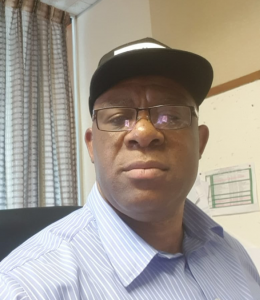
Catalyst Fellow, July 2021
Enongene Mirabeau Sone is Professor of African Literature and Folklore Studies at Walter Sisulu University in South Africa. He is a C rated scholar and researcher by the South African National Research Foundation (NRF) and a Catalyst Fellow of the Centre for African Studies of the University of Edinburgh in the United Kingdom. Prof. Sone holds a BA, MA and MPhil in African literature from the University of Dschang in Cameroon and completed his PhD in African oral literature studies from the University of KwaZulu-Natal, South Africa. He has taught in many universities in Africa including the University of Dschang in Cameroon, University of Burundi, University of Swaziland (Eswatini) and the University of KwaZulu-Natal. He has published extensively on various aspects of African oral literature and folklore in reputable academic journals across the globe. His collaboration with leading world and African folklorists led to the publication of two seminal books in Oral literature and Folklore studies: The Challenge of Folklore to the Humanities (2021) edited by Dan Ben-Amos, and The Palgrave Handbook of African Oral Traditions and Folklore (2021) edited by Akintunde Akinyemi and Toyin Falola. His research interests are in African literature and folklore studies, orality studies, popular culture, medical and environmental humanities, post-colonial discourse, mythology and place symbolism (in oral and written literatures), literary entomology, eco-culture and African (literary) aesthetics and philosophy. His several research efforts and academic experiences have established him as an authority in the above research disciplines.
Project Title: Oral Literature and Environmental Education in Swaziland (Eswatini)
There is widespread recognition among Swazis that their country’s vast and diverse natural resources are endangered as a result of unsustainable exploitation and are in dire need of preservation. The worsening environmental crisis in Swaziland in recent decades has prompted environmentalists to begin educating people about the need to adopt sustainable ways of managing natural resources. Unfortunately, this general awareness of ecology in Swaziland, though laudable and worthy of encouragement, has failed to reduce the negative impact of human activity on the environment. The study aims at showing how oral tradition can be used to create awareness on how to protect and conserve the environment. The study is based on the assumption that, for environmental education to succeed, it must incorporate the traditional knowledge of the people of the land and its resources. In other words, environmental educators must recognize and integrate the localized knowledge of the indigenous people about sustainable natural resource management in their projects. Written against the backround of the Afrocentric ecocritical theory, The study concludes by recommending the need to strengthen traditional and customary knowledge and practices by protecting and recognising the values of such systems in the conservation of biodiversity for sustainable development.
Recent Publications
Sone Enongene Mirabeau, “Power, Powerlessness and Radical Protest in Contemporary Cameroonian Popular Music.” Muziki: Journal of Music Research in Africa (forthcoming, December 2021).
Sone Enongene Mirabeau, “Oral Literature. Liberty and Political Change” In: The Palgrave Handbook of African Oral Traditions and Folklore, Akintunde Akinyemi & Toyin Falola (eds.). Macmillan: Palgrave (2021).
Sone Enongene Mirabeau, “African Oral Literature and the Humanities: Challenges and Prospects” Humanities MDPI, 7(30), 2018, pp.2-30.
Sone Enongene Mirabeau, “Tangomas’ Language: Orality and Ritual Discourse in Bakossi Traditional Medical Practice.” South African Journal of African Languages (SAJAL) 37(2), 2017. pp. 251-261.
Sone Enongene Mirabeau, “Symbolism of Place and Cultural Identity in Cameroon.” In African Identities Journal, 14(2), 2017. pp.16-28.
ORCID ID: https://orcid.org/0000-0002-3640-0407
